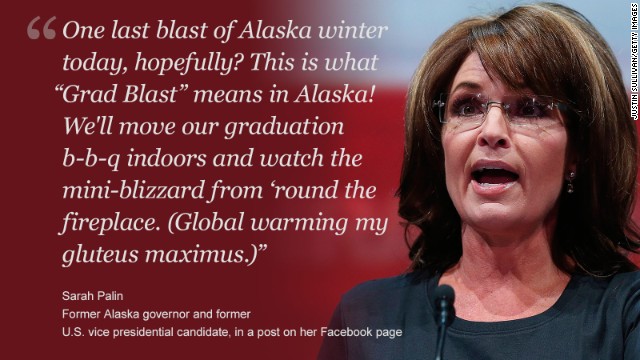Global warming denial is a pervasive issue that complicates our collective efforts to combat climate change. As scientific evidence mounts regarding the detrimental impacts of climate change on ecosystems, economies, and human health, responding effectively to deniers becomes an urgent task. This article aims to present compelling facts and counterarguments that can help shift perspectives and encourage a more informed dialogue about climate change.
First and foremost, it is crucial to understand the roots of climate change skepticism. Many individuals harbor skepticism due to misinformation, a lack of understanding, or emotional attachments to certain economic structures that fossil fuels support. By engaging with the mindset of skeptics, we can more effectively address their concerns. Establishing a respectful dialogue opens avenues for constructive conversations, rather than confrontational arguments.
One of the most potent tools in dismantling climate change denial is presenting empirical evidence. The Intergovernmental Panel on Climate Change (IPCC) has released numerous comprehensive reports indicating that human activities, particularly the burning of fossil fuels and deforestation, are primary contributors to global warming. The data is clear: the concentration of carbon dioxide in the atmosphere has increased substantially since the Industrial Revolution, reaching levels unprecedented in over 800,000 years. This fact alone should prompt careful consideration and reflection on the consequences of these activities.
Additionally, we can underscore the observable effects of climate change in real-time. Rising sea levels, increased frequency of extreme weather events, and shifting biodiversity patterns offer tangible manifestations of something that skeptics may otherwise dismiss as theoretical. For instance, Hurricanes Harvey, Irma, and Maria serve as grim examples where climate change has exacerbated natural disasters, resulting in catastrophic economic damage and loss of life. When skeptics witness the tangible consequences of climate change first-hand, it challenges their long-held beliefs.
Another strategy is to highlight the overwhelming consensus among climate scientists. Pew Research Center data indicates that approximately 97% of actively publishing climate scientists agree that climate change is primarily driven by human activity. This broad agreement is not merely anecdotal; it is based on rigorous scientific investigations and peer-reviewed research. Addressing the notion that climate change is a topic of “debate” among scientists provides a clearer narrative, illustrating that skepticism may stem from misinformation rather than factual discourse.
Vocabulary is also a critical aspect of persuasion. Instead of using terms that may provoke defensiveness—such as “denier” or “myth”—consider employing a more constructive language that focuses on curiosity and inquiry. By inviting skeptics to ask questions rather than laying down facts as absolutes, we allow space for exploration. A tone of understanding fosters a collaborative approach to uncovering truths about climate change.
Moreover, it’s vital to rectify common misconceptions surrounding the repercussions of climate action. Many skeptics argue that implementing renewable energy solutions would gravely harm economic growth. Contrarily, the renewable energy sector is one of the fastest-growing industries in the world. The global market for renewable energy is projected to exceed $2 trillion by 2025. These alternative energy solutions not only mitigate climate change but also foster job creation, innovation, and energy security. The shift to a greener economy offers profound economic benefits that skeptics should carefully consider.
Furthermore, addressing societal impacts specific to skeptics’ communities can create deeper connections. For instance, farmers facing unpredictable weather patterns due to climate change may find their livelihoods threatened. This personal stake can lead to latent support for climate action. By localizing the conversation, activists can engage skeptics in dialogue that considers their unique circumstances, further humanizing climate change and making it relatable.
Bringing emotional intelligence into the discourse is incredibly effective. Connecting with stories of individuals and communities impacted by climate change can elicit empathy, a powerful tool for changing perspectives. People often respond more credibly to anecdotes than statistics. Highlighting the experiences of climate refugees or families displaced due to flooding can make the abstract nature of climate data more palpable and resonate on a human level.
Visual aids can also significantly enhance understanding and retention of information. Graphs and infographics illustrating rising temperatures, glacial melt, and carbon concentrations can help visualize the concepts being discussed. Providing a visual context makes the stakes of climate change more real and imminent, encouraging skeptics to confront the reality of the situation.
Another promising avenue in combating climate change denial lies in engaging youth. Younger generations are more attuned to climate advocacy and are often passionate about environmental stewardship. By mobilizing these voices, it has the potential to influence older generations in ways that appear less confrontational and more as a shared responsibility. Schools and youth organizations can play a pivotal role in disseminating accurate information and engaging community dialogues.
In summary, addressing global warming denial necessitates a multifaceted approach grounded in empathy, respect, and rich, evidence-based dialogue. Presenting irrefutable facts, fostering understanding through relatable discourse, and sharing compelling narratives of those affected by climate change can shift perspectives and encourage skeptics to reconsider their stance. By appealing to both the intellect and emotions of climate change deniers, we can forge pathways toward progress, ultimately leading to a collective commitment to preserve our planet for future generations.








